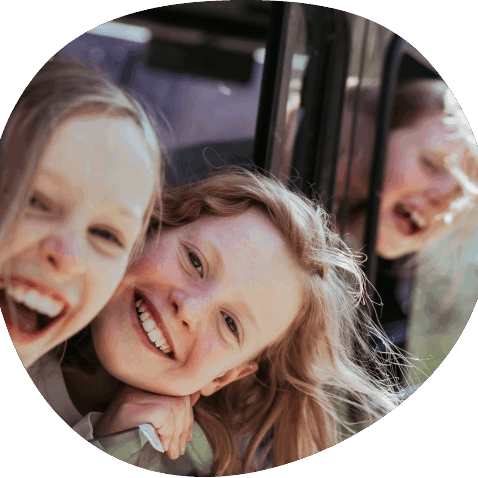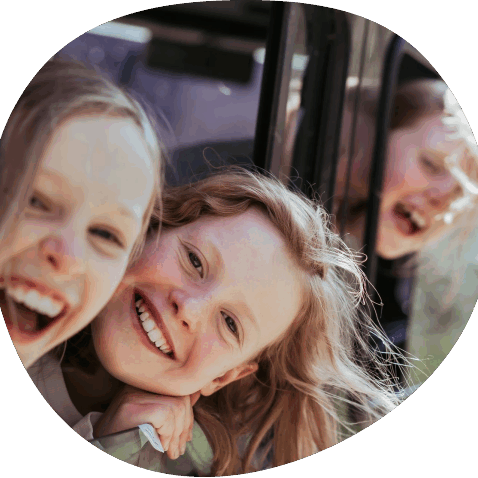Heartfulness practices for children

The good news is we can train the mind, just as we can train a puppy.
I have been teaching and working with children for over 25 years. Children are the greatest of my teachers. It was having my first (of three) child that truly awakened me to myself. Children are naturally present—curious, embodied, and alive to the moment. My work supports them in nurturing that presence and building a kind, resilient relationship with themselves. Children thrive in relationship. Without this, there is nothing to sustain their interest. I enhance their relationship to themselves and in turn the world around them.
I work with children aged 7 and up, offering heartfulness practices that help them explore attention and emotion, and cultivate resilience, self-compassion and inner strength. In our sessions, we learn how to steady the attention and develop awareness to the present moment. Whether a child is full of energy, diagnosed with ADHD or another super power, feeling anxious or lacking confidence, I gently help them foster safety and stability within themself using practical, playful tools that they can integrate into everyday life.
We also explore how the brain works, how thoughts, emotions and sensations are connected and how we can use anchors to respond to stress. This helps children develop the ability to respond rather than react. This gentle introduction to neuroscience alows children to feel empowered by understanding what is happening in their brains and how to strengthen the relevant parts of the brain. They learn to notice the language of the body, a clenched jaw, a racing heart, a tight tummy, holding their breath, as well as understanding how thoughts, feelings and sensations influence one another. Learning to read the signals helps guide them towards awareness and self-compassion.


My approach

Self-compassion is key to my work with all children. You can learn to love yourself like a friend, a fierce and loving friend, a wise and caring friend. So often, we do not notice the self-deprecating voice we cultivate internally. I work to bring gentle attention inwards and to help children develop a friendship with self to offer them the friendship they seek externally, within. This in turn strengthens outward connections.
Through breathing techniques, grounding games, storytelling, movement and guided rest, children learn how to settle their nervous systems, meet big feelings with kindness and understand what’s happening inside their minds and bodies. These are not lessons in how to be calm or good, they are invitations to be whole, to listen inwardly, and to grow a wise and loving presence that can walk with them through life.
My approach is trauma-sensitive, creative and rooted in deep respect for the individuality of each child. I draw on years of experience as a mother and working with young people, along with influences such as Bowlby, Steiner, Krishnamurti, Winnicott, Jung, Gabor Maté, Kristen Neff, Susan Kaiser Greenland and Thich Nhat Hanh, among others, all of whom have shown me the tender wisdom of childhood.
Mindfulness for children: evidence and outcomes

The mindfulness sessions I offer to children are rooted in evidence-based curricula, including the Paws B programme developed by the Mindfulness in Schools Project and Exeter University. This curriculum is informed by neuroscience and psychology, and has been evaluated in school settings across the UK.
Research shows that mindfulness in schools can help children to:
- Improve focus and attention.
- Develop emotional regulation and resilience.
- Increase empathy and kindness.
- Reduce anxiety and stress.
- Enhance overall wellbeing and classroom engagement.
Large studies such as the MYRIAD Project (Oxford University) have shown that mindfulness is not a quick fix and may be less effective when delivered at scale without appropriate training or relational depth. These findings affirm the importance of how mindfulness is taught. My work is not delivered through general school programmes, but in smaller, more relational settings, where children are met with warmth, care and personalised attention. The study also shows how well mindfulness worked for teachers and reported lower levels of burnout.
International research, including a 2014 meta-analysis by Zenner et al., supports the benefits of school-based mindfulness for cognitive performance and emotional regulation. (Zenner et al. (2014) A systematic review and meta-analysis (including UK studies) found benefits in cognitive performance and emotional regulation.
https://doi.org/10.3389/fpsyg.2014.00603)
There is now a growing body of neuroscientific research showing that mindfulness supports children’s emotional and cognitive development. Studies using brain scans have shown increased activity in areas related to attention, memory and emotional regulation, as well as a reduction in stress reactivity. Meta-analyses and educational reviews consistently report improvements in children’s ability to focus, stay calm, relate kindly to others and build resilience.
https://www.sciencedirect.com/science/article/abs/pii/S092549271000288X?via%3Dihub
In my own sessions, I see children becoming more self-aware, calmer and more confident in relating to their thoughts and emotions. They are invited to create their own practices, connect with their inner resources and cultivate an inner ally, qualities that offer strength, clarity and care from within. In this way, they build resilience and deeper connection with themselves and each other.

